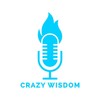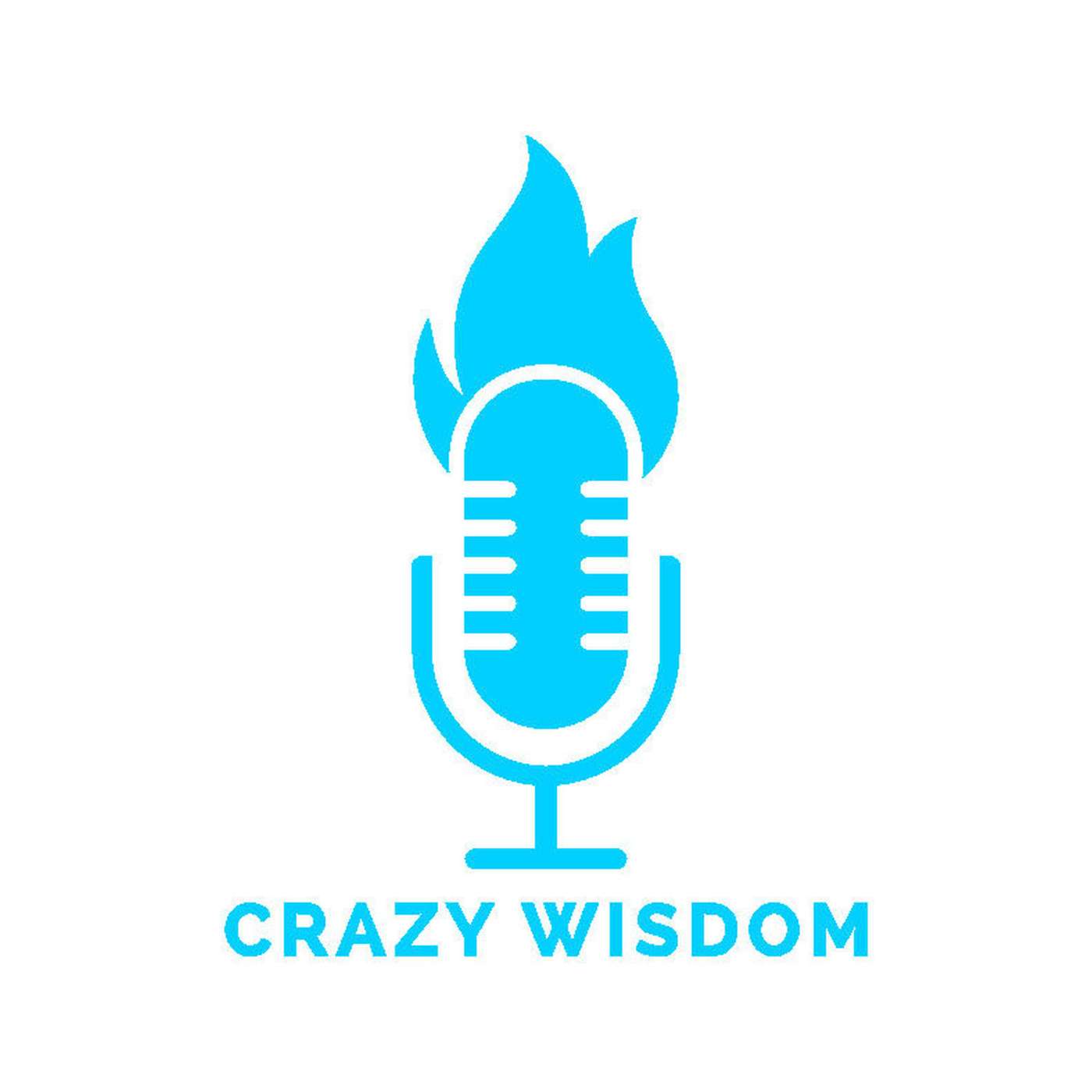

Crazy Wisdom
Stewart Alsop
In his series "Crazy Wisdom," Stewart Alsop explores cutting-edge topics, particularly in the realm of technology, such as Urbit and artificial intelligence. Alsop embarks on a quest for meaning, engaging with others to expand his own understanding of reality and that of his audience. The topics covered in "Crazy Wisdom" are diverse, ranging from emerging technologies to spirituality, philosophy, and general life experiences. Alsop's unique approach aims to make connections between seemingly unrelated subjects, tying together ideas in unconventional ways.
Episodes
Mentioned books

Apr 22, 2019 • 60min
Nicholas Brysiewicz of the Long Now Foundation
This is part of a new series where I ask someone what they are reading, I read it, and then we record a conversation to get the main points of the book. The point is to let you the listener get access to the wisdom of a book without necessarily reading it. We both read the book "The New Dark Age" by James Bridle about the unintended consequences of technology.

Apr 19, 2019 • 47min
Kunal (@crazypolymath)
I really enjoyed sitting down with Kuval who lives in India and is spitting fire on Twitter about how to make money doing what you love. We get into that as well as first principles, and the transmission of morals in the time of globalization.

Apr 15, 2019 • 60min
Does a chip on your shoulder help you become successful?
Vinay is one smart dude and lays down the knowledge about neural networks as well as the stress of growing up in the middle of Illinois as a person of color. Also how that lead him to be who he is today and propels him towards success. This guy has a lot of valuable things to say.

16 snips
Apr 12, 2019 • 1h 4min
Kapil Gupta
In this enlightening discussion, Kapil Gupta, a speaker focused on truth and wisdom, dives into the art of authentic communication, stressing the importance of creativity over rigid rules. He highlights the challenges technology brings to genuine connections and reflects on how societal distractions hinder personal growth. Gupta emphasizes that the right questions can transform one’s spiritual journey and critiques imitation in the pursuit of success. Additionally, he explores the link between chronic pain and unresolved emotions, advocating for sincerity in all aspects of life.

Apr 8, 2019 • 52min
How will technology make us more mindful?
Sumon is an Angel Investor and Entrepreneur, Current Chief revenue office in Plato design and had invested in 25 companies in AI, the extension of human life, and many others. We talk about the intersection of wisdom practices that are thousands of years old and modern technology.

Apr 1, 2019 • 52min
How to balance intuition with the intellect?
Just interviewed @kylebrussell about his thoughts on the relationship between stress and creativity. This was one of my favorite interviews. His reading and the way he uses the knowledge he gains from reading is truly astonishing. Insights as follows. Mental models: best way to learn is to see how the mental models of others have failed or succeeded and then update your own mental model based on that. There are drawbacks to only playing with mental models. This is where intuition comes in. Intuition can be trained. Intuition can be balanced by checking intuition against the intellect. It's a process between weighing both of these and adapting the feedback from what happens back into the mental model and training intuition. System 1 and system 2 from D Kahneman. Two general types of creativity with overlap include business person and artiste. A business person is motivated to solve large problems due to external motivations such as legacy and status. They build and buy into a narrative that they are the ones to solve this huge problem. Artiste is motivated by an internal motivation to express that which is inside them. They are tortured by their un expressed creativity and must manifest it into reality. @theartistsway is a great book. Artistes are often uncomfortable with the things that they do that don't conform to the status quo. Yet this is what they have to offer the world. So the process of the artiste is to become comfortable with that which sets them apart.

57 snips
Mar 29, 2019 • 47min
Kapil Gupta
Guest Kapil Gupta shares profound truths that challenge societal conditioning, emphasizing the importance of authenticity and inner growth. The podcast explores the impact of facing difficult truths, seeking genuine transformation, and embracing uniqueness in overcoming challenges like insomnia.

Mar 25, 2019 • 56min
How can Daoism make us less stressed and more creative?
Paul drops some knowledge on how to find yourself, live more creatively while being less stressed, and find your purpose here on the planet. Really deep. I hope you enjoy.

Mar 18, 2019 • 46min
The medical implications of stress
I just interviewed Lavinia Cerasela Ionita about her work using stress biomarkers and personalized video conferencing with doctors to help people get a handle on their stress.

Mar 11, 2019 • 35min
The risk of being creative
I sit down with my roommate David Zangwill who has a lot of interesting things to say about the relationship between stress and creativity.


